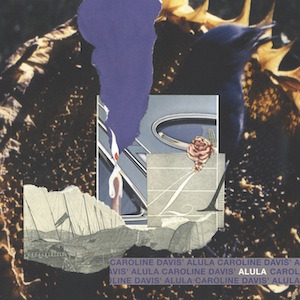Label: RareNoise, 2019
Personnel – Jamie Saft: piano; Dave Liebman: tenor and soprano saxophones, flute; Bradley Christopher Jones: acoustic bass; Hamid Drake: drums.
The penchant for spiritual sounds evinced by keyboardist Jamie Saft is widely known, especially after a successful double release on RareNoise imprint last year: Solo a Genova and Blue. The novelty of his new album, Hidden Corners, is the musicians that follow him in this restorative, empyreal journey of musical discovery. Whereas bassist Bradley Christopher Jones continues in the rhythm section, the well-versed drummer Hamid Drake occupies the chair that belonged to Nasheet Waits. In the frontline, tenorist Bill McHenry gives his place to master saxophonist Dave Liebman, who extends the sonic possibilities with the addition of flute, tenor, and soprano.
Inspired by concepts from Jewish mysticism, the eight-track album makes a start with “Positive Way”, going toward the bandleader’s confession of faith in positivism. We find Jones bowing the bass with depth in a generous contribution for the overall splendor until he shifts technique to embark on an expressive pizzicato solo whose melodic paths amaze. With Drake driving the boat with pure love for rhythm and low-key expertise and Saft accompanying with the habitual efficacy, Liebman makes an astounding entrance, rising up above the ground with lines that simultaneously strike and breathe.
Asserting freedom, “Seven are Double” creates disengaged avant-jazz momentum with Liebman’s gutsy explorations and Saft’s episodic sweeping surges and intervallic leaps. The bass configurations engendered by Jones also soar with majestic grace.
The entrancing mood of Alice Coltrane is evoked on “Yesternight”, a 3/4 modal jazz tune where the bandleader imbues every detail with intention, denoting great sensitivity across the full range of the keyboard. His glorious chords add depth and counterpoint to Liebman’s luxuriant lyricism on the title track, a 12-bar blues whose amiable physiognomy makes us relax and enjoy its sounds with an open heart.
“231 Gates” is a free-form exercise melodically driven by a whistling flute that confers it airier vibes, bringing to memory the first section of Pharaoh Sanders’ “Morning Prayer”. Conversely, “Turn At Every Moment”, propelled by Drake’s pensive cymbals and quiet drum work, elicits some intonational comparisons with Billy Strayhorn’s “Lush Life”.
The program is completed with “Landrace”, offering a strenuous yet grooving bass solo upfront, an inexhaustible swinging tide for the soprano and piano statements, and a subtle Latin pulse by the time that Liebman re-enters to ensure completion.
Saft and his peers, besides dominating the genre inside-out, have an engrossing, ardent way of improvising. They are true masters in steering us toward these healing prayer-like pieces.
Grade A
Favorite Tracks:
01 - Positive Way ► 03 - Yesternight ► 08 - Landrace








































